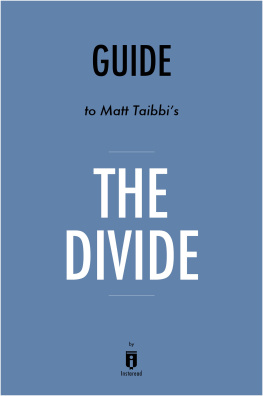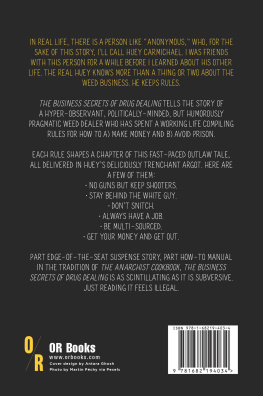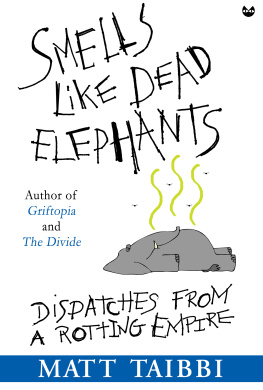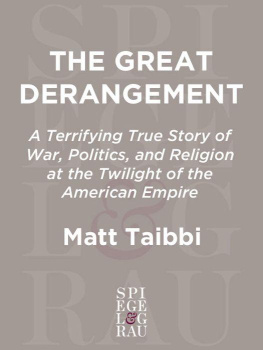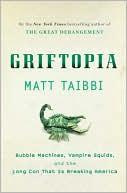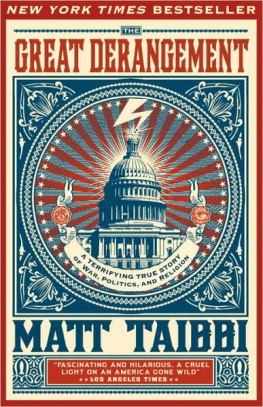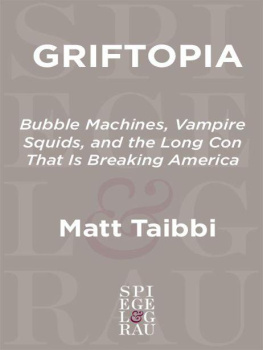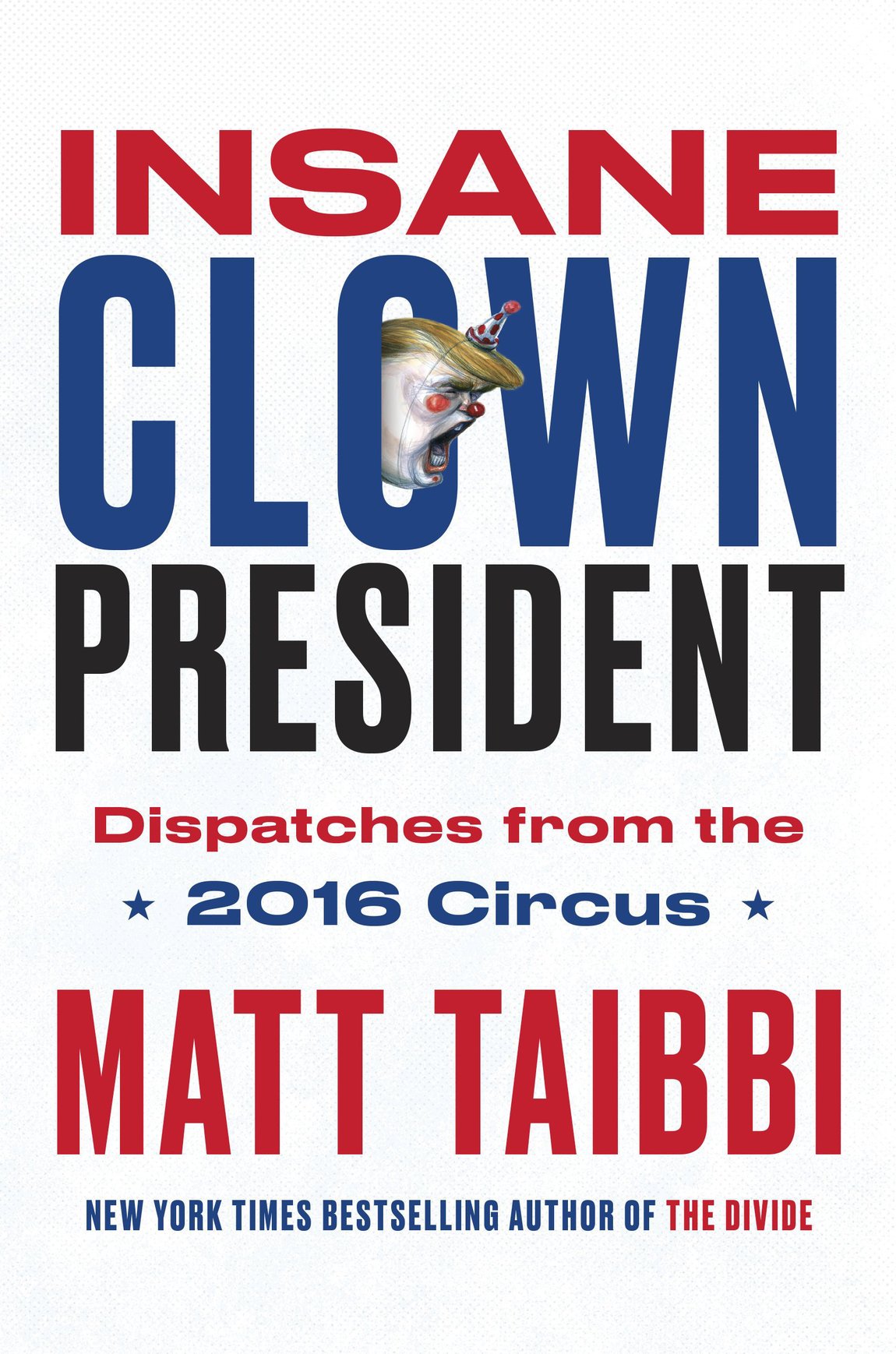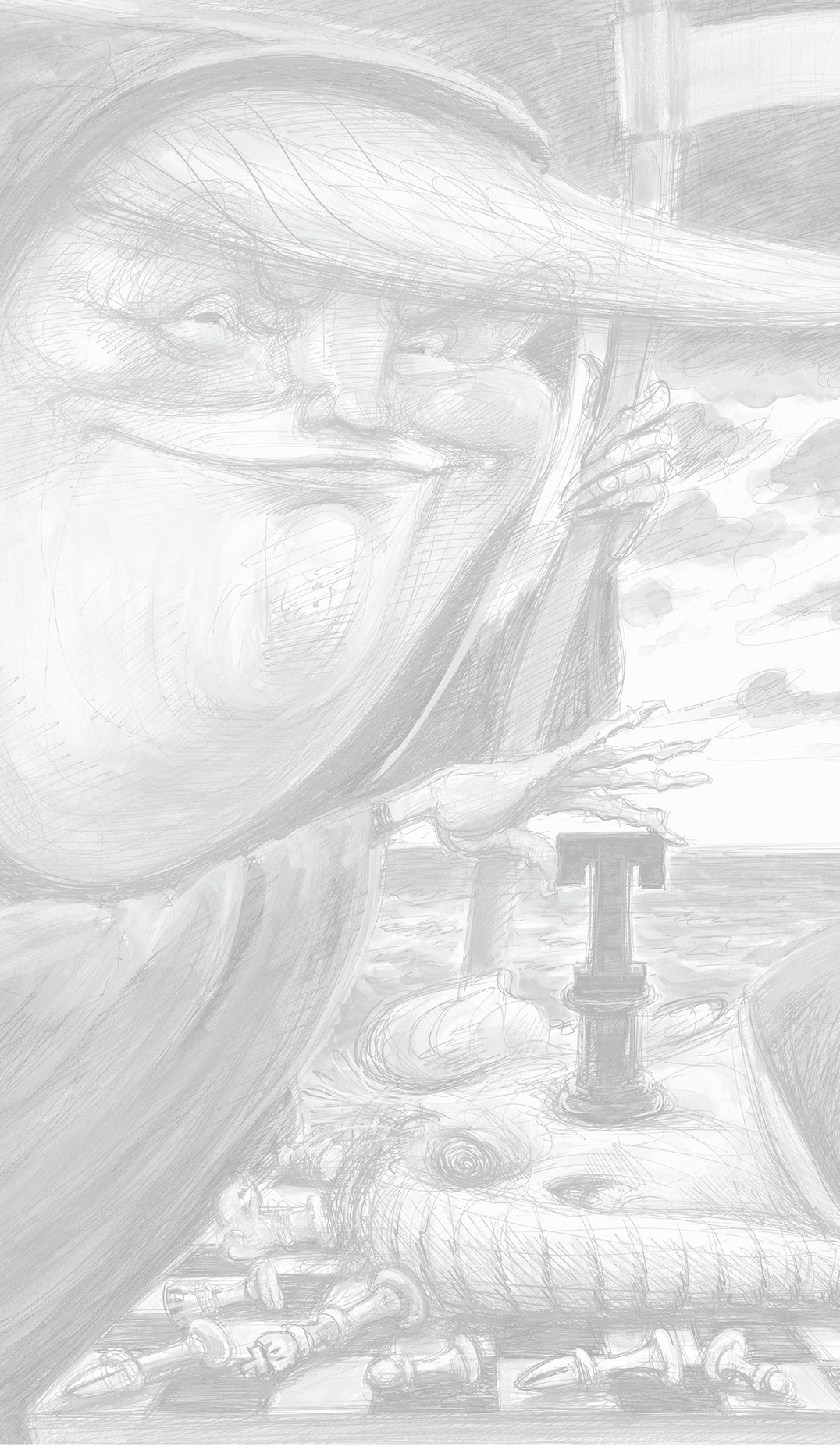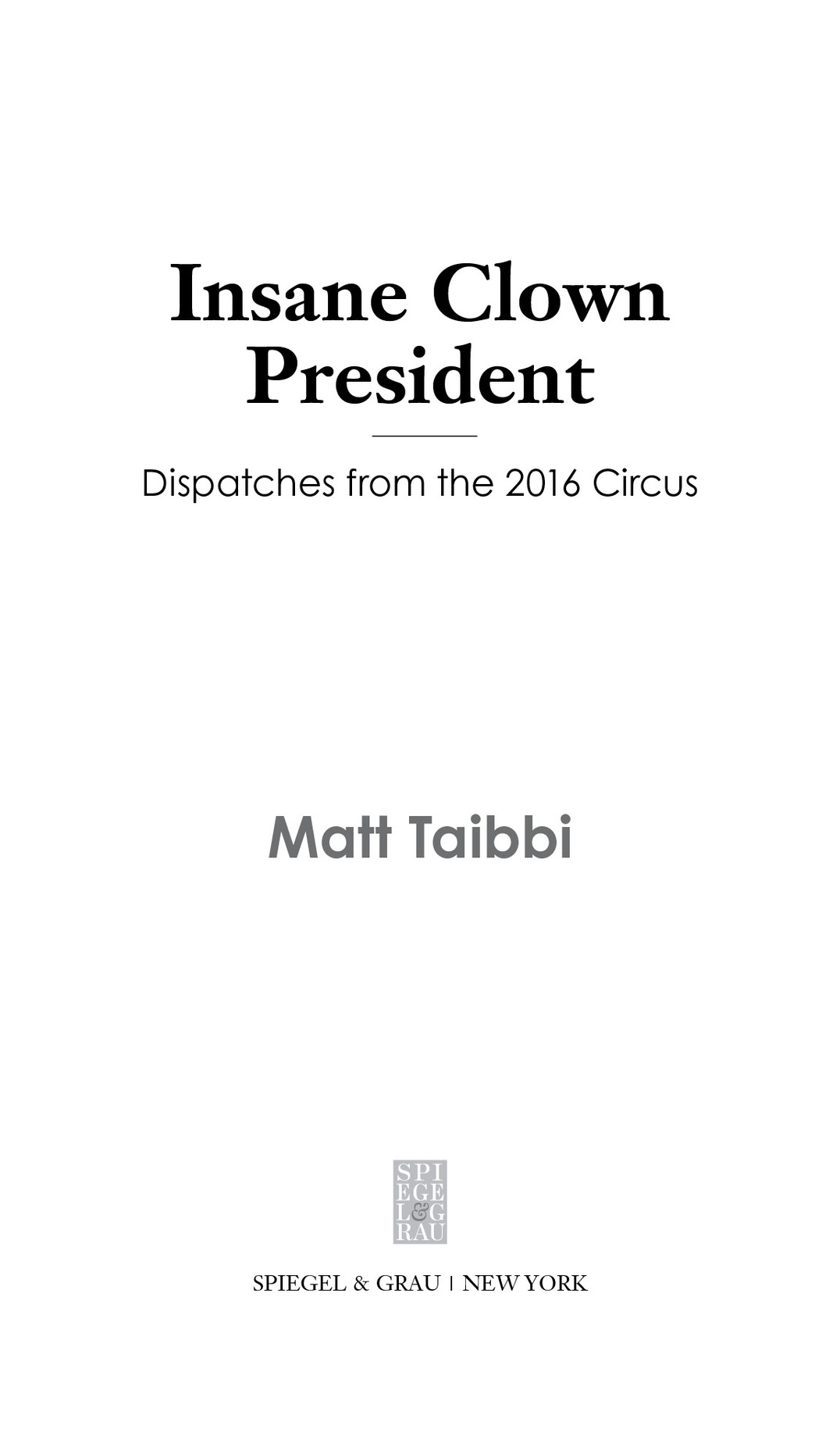All rights reserved.
Published in the United States by Spiegel & Grau, an imprint of Random House, a division of Penguin Random House LLC, New York.
S PIEGEL & G RAU and Design is a registered trademark of Penguin Random House LLC.
Grateful acknowledgment is made to Houghton Mifflin Harcourt Publishing Company for permission to reprint an excerpt from The End of the World from Collected Poems 19171982 by Archibald MacLeish, copyright 1985 by The Estate of Archibald MacLeish. Reprinted by permission of Houghton Mifflin Harcourt Publishing Company. All rights reserved.
I believe that ignorance is the root of all evil. And that no one knows the truth.
Introduction
A little over ten years ago, while writing a book and working as a correspondent for Rolling Stone, I thought I saw a new trend in American politics.
I was spending half my time in Washington watching Congress make some very unsavory sausage and the other half hanging around political extremist movements in various parts of the country. In retrospect, the setup probably predetermined the conclusion. Nonetheless, I ended up returning over and over to the same theme, which had a syllogistic formula:
The countrys leaders are corrupt and have become unresponsive to the needs of the population.
People all over are beginning to notice.
This being America, as ordinary people tune out their corrupt leaders, they will replace official propaganda with conspiratorial explanations even more ridiculous than the original lies.
This was the core idea behind a book that ended up being called The Great Derangement. Between first-person narratives about fringe political phenomena like the apocalyptic Rapture movement and 9/11 Truth, the book tried to warn about a loss of faith in national institutions, most notably in my own business, the political media.
I felt sure a collapse of belief in the efficacy of the news media, if it coincided with widespread (and justified) political discontent, could lead in some pretty weird directions. One possible future was one in which politics stopped being about ideology andinstead turned into a problem of information.
The 2016 presidential campaign, simultaneously the most thrilling and disgusting political event of our generation, proved to be a monstrous affirmation of the Derangement. The stunning rise of Donald Trump marked the apotheosis of the new postfactual movement.
Every mechanism our mighty oligarchy had devised to keep people like Trump out of power failed. This left the path to power wide open for anyone who understood, or sensed, the depth of the crippling weaknesses in our political infrastructure.
I didnt see Donald Trump coming. But as a campaign reporter Id surely seen trouble on the horizon. The most obvious problem was the total alienation of candidates and their attendant media from the population.
Id struggled with this issue from the first time I was sent out by Rolling Stone to cover a campaign, in 2004. One of the first things that struck me was the way the candidates and the traveling press moved around the country in what was essentially a roving prison.
Your route was from a bus, to a charter plane, to another bus, to an event hall (where you were kept behind rope lines most or all of the time), back to the bus, back to a plane. Then the cycle would repeat until you got to a hotel in the next city, at night. You slept six hours and repeated the pattern, day after day, week after week.
This moving prison was so airtight that if you needed cigarettes, you had to ask campaign volunteers (the Kerry crew called them Sherpas) to smuggle them in.
This seemed like merely a strange detail when I first wrote about it more than a dozen years ago. But it spoke to a much more enormous problem. It was a perfect metaphor for the distancing of the ruling class from the population. Presidential campaigns were bubbles, and the people inside them became myopic codependents. The establishment pols and their lackeys bullied the press into becoming guardians of their orthodoxy. The press in turn savagely policed the agreed-upon lines of decorum.
To campaign professionals, real people became fodder for stylized visual backgrounds and nothing more. In a less self-deceiving futureperhaps under a leader like Donald Trump who better understands that presidential races are now really just big television showsthey will conduct campaigns from a single soundstage in a place like Burbank and just blue-screen in the different crowds and locations.
Campaigns needed people only as props. If a candidate wanted to show that he or she was with it on racial issues, that candidate would visit a predominantly black high school and be photographed clapping to a school band performance. If he wanted a worker-friendly image, hed visit a robotics factory in Wisconsin and be photographed wearing a hard hat and goggles. And so on.
But neither politicians nor reporters were ever in one place for long enough to see or hear what was really going on with the public. In place of that one-on-one experience, politicians and the press increasingly relied upon polls, and each other, to gauge the temperature out there. This resulted in a bizarre mutual-admiration-society situation in which everyone inside the plane gradually became more and more removed from the outside world.
When fellow Rolling Stone scribe Tim Crouse wrote The Boys on the Bus nearly half a century ago, he was mostly describing how pack journalism led to faulty reporting. But his description of the culture on the Bus also accurately foretold the derangement of the whole campaign mechanism, which included the politicians with whom reporters traveled.
Stuck inside the campaign bubble for too long, politicians and journalists alike started to operate like high school Heathers, using abuse and shaming to enforce the myriad social rules inside the plane. If Candidate A fell outside either behavioral or policy lines, fifty reporters immediately cried foul and that candidate quickly retreated, or else.
A classic example was Howard Dean. Now a dependable party creature, Dean in 2004 initially garnered enthusiasm for his opposition to the Iraq War and his heretical reliance upon small online donations as a way around the Democratic leaderships kingmaking corporate donors.


